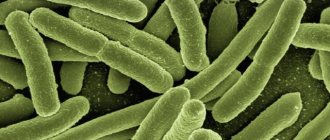If a person is diagnosed with helminthiasis, it is important to know what symptoms occur, and can there be a fever from worms? The fact is that with helminthic infestation, various symptoms arise, which make it difficult to identify the root cause of the problem. If a person constantly has a low-grade fever, and the causes of this condition are unknown, an urgent need to contact a medical facility in order to diagnose the problem.
Is there a fever during an invasion?
With helminthiasis, an increase in temperature is possible, since parasites are a toxic allergen to which the body reacts accordingly. So with helminths there is a fever, however, other symptoms also occur, namely:
- allergic skin rash;
- nausea and causeless weight loss;
- itching in the anal area;
- sleep disturbance, irritability;
- abdominal pain, increased gas formation;
- dry cough with damage to lung tissue.
With helminthiases, the temperature in children often rises, since the child’s body is susceptible to the presence of a foreign protein in the blood plasma, which provokes a corresponding reaction. A high temperature indicates a severe helminthic infestation, and if the child’s condition worsens, while the temperature is disturbing without obvious signs of acute respiratory infections, you need to immediately go to the hospital, since delaying treatment can cost the baby’s life.
Causes of fever when infected with worms
Worms can cause a temperature of 36.9-38 degrees and rarely higher. The temperature with worms in adults and children increases for several reasons.
- Inflammation at the site of tissue damage . Once in the gastrointestinal tract, parasites “eat” into the intestinal walls. The human brain receives a signal from the damaged tissue and begins the inflammatory process. Because of this, the temperature rises, but it does not kill the worms. The tissue heals, but the worms continue to irritate the intestines - the inflammation develops into chronic inflammation.
- Blockage of the bile ducts . Some parasites are not content to stay in the intestines, but are sent to the liver and gallbladder. There the worms grow and multiply, clogging the ducts. As a result, cholangitis occurs - inflammation of the bile ducts and cholecystitis - inflammation of the gallbladder. A person experiences discomfort in the liver area, a fever, nausea, loss of appetite, stomach pain, and jaundice. Not all symptoms need to be present at the same time. In extreme cases, a purulent liver abscess begins, which leads to high fever.
- Anemia due to helminthic infestation. Worms literally drink human blood. As a result, some infected people develop a fever. This happens because a lack of hemoglobin in the blood leads to hypoxia (low oxygen content) of tissues, including the brain: then metabolism and thermoregulation are disrupted. After the anemia is cured and the worms are expelled, the temperature returns to normal on its own.
- Intoxication with waste products of worms and decomposition of their corpses is another possible reason for the rise in temperature. Some people feel this intoxication, others do not. It all depends on the strength of the immune system, the type of parasite and the lifestyle of the infected person.
- autoimmune processes develop as a result of helminthic infestation . When infected with intestinal lamblia, roundworms, strongyloides and heartworms, people develop atopic eczema. In such diseases, the immune system attacks its own cells, perceiving them as foreign, which causes inflammation and fever.
- The entry of worms and larvae into vital organs is a dangerous phenomenon that can lead to death. There are numerous cases of parasites migrating through the bloodstream to the lungs, heart and brain. There the larvae grow into full-fledged individuals. The person develops heart, lung and brain symptoms. Sometimes worms are mistaken for tumors on X-rays, and operations are prescribed during which kilograms of adults and larvae are pumped out of the affected organ. In the video below, doctors pump worms out of the heart.
What helminths cause fever?
Roundworms provoke an increase in body temperature.
With parasites such as roundworms, not only does the body temperature rise, but also severe symptoms of intoxication of the body are present. In this case, signs appear in the first days of infection, as soon as the eggs penetrate the human intestines. Trichinella causes muscle spasms, provokes an increase in temperature to 38 degrees and above, and it is not always possible to immediately determine the cause of the pathological condition.
Small pinworms, which in most cases bother children, also cause an increase in body temperature, but it does not reach high levels and remains within 37 degrees. Often, with such signs, the pediatrician begins to treat the cold, but the parasites continue to multiply and infect the baby’s body. If the disease occurs in young children, then drug treatment should be carried out under the supervision of a pediatric infectious disease specialist, who in case of severe intoxication will provide timely first aid.
Symptoms of the effects of helminths on the human body
Worms appear in the form of an embryo or larvae; adult individuals do not show signs of vital activity. Parasites move throughout the body through the blood system, settling in the lungs, intestines, and other internal organs. The immune system produces symptoms that determine the presence of the disease in the early stages.
Main types of symptoms:
- Dry cough for a long time;
- Asthma attacks;
- Rash and itching on the skin, any allergic rashes;
- Pain in the abdominal area;
- Decreased appetite;
- Nausea;
- Constipation or diarrhea;
- Dysbacteriosis;
- Anemia;
- Fatigue;
- Increased body temperature.
Diagnostics
To understand what factors provoked the increase in temperature, you need to undergo a diagnostic test that will confirm helminthic infestations in the human body. To do this, samples are taken from adults or children for a blood test, which, if infected, shows an increase in eosinophils, and the hemoglobin level will be below normal.
The doctor will also advise you to take stool tests, which will contain helminth eggs and larvae during infestation. It is recommended to take a sample for analysis at least 3 times during the week, this way it will be possible to accurately identify parasites. In addition, a smear is taken from the patient’s external tissues of the anus, in which a laboratory assistant identifies helminth eggs under a microscope. If the parasites have reached large sizes and the above methods do not provide accurate information, an x-ray of the abdominal organs is prescribed, where the doctor will see foreign inclusions in the images, which will help to understand what kind of helminthiases could cause the pathological condition.
Examination for chronic fever
First of all, we find out:
- What is happening with the nervous system (usually a full neurological examination is enough, less often an MRI scan of the brain to assess the condition of the hypothalamus);
- What happens to the immune system (detailed immunogram - blood test);
- The presence and activity of infectious and autoimmune inflammatory processes .
Research data helps us accurately determine the range of causes of what is happening, and offer treatment aimed exactly at the target .
How to lower the temperature?
An increase in temperature requires drinking a lot of fluids.
To lower the temperature caused by helminths, it is important for the doctor to prescribe adequate therapy that will help destroy the worms, and accordingly, the accompanying symptoms will go away. After taking anthelmintic drugs, a person needs to be provided with bed rest, given plenty of fluids to drink, and take gentle food that does not cause irritation. Good antipyretics that lower the temperature in adults and children are Ibuprofen or Paracetamol.
If the temperature does not subside and the symptoms worsen, under no circumstances should you stay at home and try to cope with the problem yourself. In this case, severe complications may develop, which in some cases can cost a person’s life.
To alleviate the symptoms of intoxication, the doctor will recommend drinking laxatives that will help remove dead organisms from the body, which will significantly alleviate the condition and will not cause an increase in temperature. When all the helminths are gone and the first course of treatment has been completed, you need to retake tests that will show how successful the treatment was. After this, after a couple of weeks, the patient needs to undergo a second course, which will help eliminate the remaining parasites and those that have just hatched.
How to reduce temperature if there are parasites in the body
If there is no fever or the critical level has not been reached, then it is not recommended to reduce body temperature. The body fights pests on its own.
Recommendations for alleviating the condition of fever in children and adults:
- Drink plenty of fluids (water, tea with jam, lemon, honey).
- Maintain bed rest.
- Give liquid food.
The main reason that fever lasts a long time and causes inconvenience is due to the active reproduction and development of parasites. In this case, the following medications will help:
- Paracetamol.
- Analgin.
- Ibuprofen.
It is extremely undesirable to take these drugs often; they will aggravate the condition of the body.
Treatment of infestation
Antihelminthic drugs are used to treat infestations.
Helminthic infestation is treated with specific drugs that destroy adult individuals, but they are powerless against worm eggs, which is why it is so important to undergo a repeated treatment regimen and destroy newly hatched individuals. For helminths, drugs such as Pyrantel, Levamisole, and Mebendazole are most often used. It is important to note that the type of medication and the regimen of use are prescribed by the doctor after he receives the test results and is convinced of the diagnosis. Any self-medication for worms leads to serious consequences, which are much more difficult to combat.
Symptoms of helminthic infestation
Body temperature with worms is not the main symptom. More often, other signs appear, although infection can be asymptomatic. You should be wary if you have the following manifestations, in addition to fever:
- nausea, vomiting;
- diarrhea, constipation;
- pain in the intestines;
- teeth grinding at night;
- weight loss due to increased appetite;
- loss of appetite;
- pale skin;
- bruises under the eyes;
- skin rashes;
- jaundice;
- itching in the anus;
- cystitis;
- discomfort in the intestines and liver;
- headache;
- desire to eat inedible foods, darkening of the eyes (signs of anemia);
- weakness, fatigue;
- irritability, bad mood;
- fears, tearfulness.
Prevention
To avoid re-infestation, it is necessary to exclude factors that could cause helminthiasis infection. Most often, parasites enter the human body orally, through unwashed hands, food, and household items. Therefore, it is important to strictly observe the rules of hygiene, teach your children to regularly wash their hands before eating, not to put other people’s toys in their mouths, and not to play with yard animals.
The eggs of some types of worms are found in fresh animal meat and remain alive if the temperature is not sufficiently treated. After eating such meat, a person becomes infected and becomes a carrier of the disease, which can cause fever and other severe symptoms. Therefore, you need to ensure that meat dishes are subjected to high-temperature processing, then helminth eggs have no chance of surviving.
Immunity against helminths
The human body reacts to infection with worms in the same way as to infection with viruses. But the immune system cannot act on helminths as effectively as on pathogens. This happens for the following reasons:
- the helminth is adapted to the conditions of the human internal environment;
- immunity resists helminthic invasion weakly and the effect does not become destructive for the parasite;
- the worms are too large and have different stages of development, as a result of which they are almost impossible to destroy using traditional immunity measures against viruses and bacteria;
- After recovery from helminthiasis, a person almost never develops complete immunity to re-infection with the same type of worm.
However, the human body still has some immunity against worms. In some cases, it suppresses the reproduction of parasites and large-scale colonization of the body does not occur. In other cases, the body can successfully resist the penetration of worms into vital organs and blood, so the worms die, because. they have nothing to eat.
In addition, the human body also adapts to life with worms and over time develops immunity to the toxins of the worms.
In addition, doctors have noticed: in a person with a strong immune system, helminths do not cause such terrible consequences as in weakened people. A nutritious diet also influences the course of the disease. That’s why it’s so important to eat a balanced diet and support your immune system.











